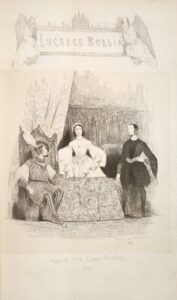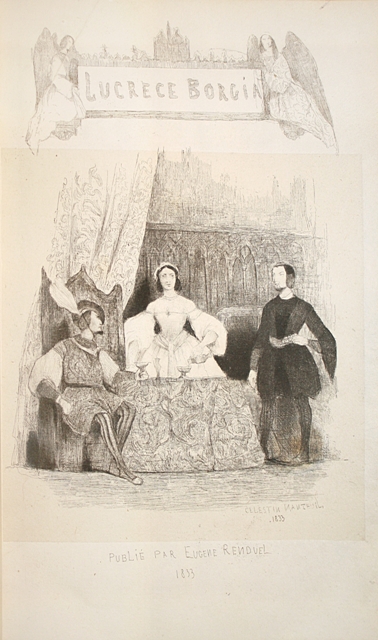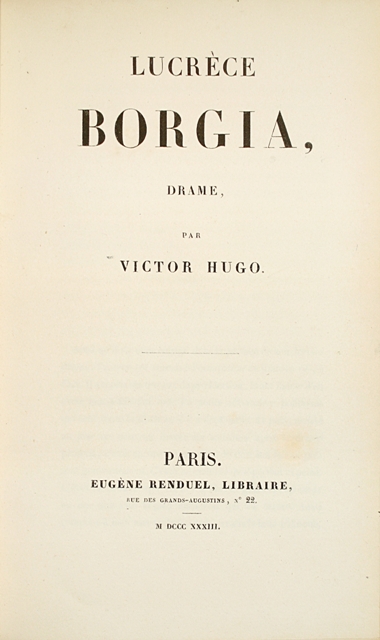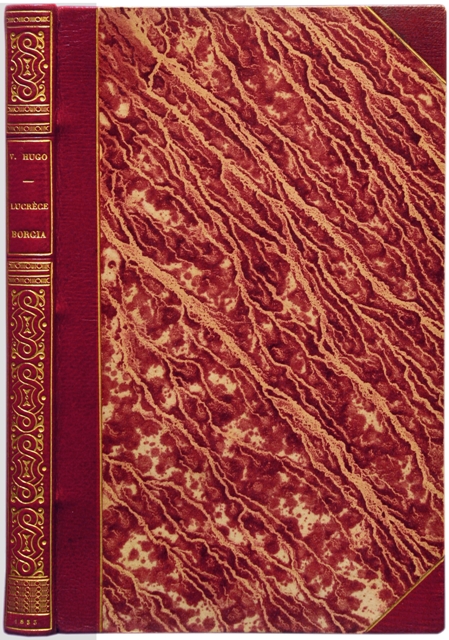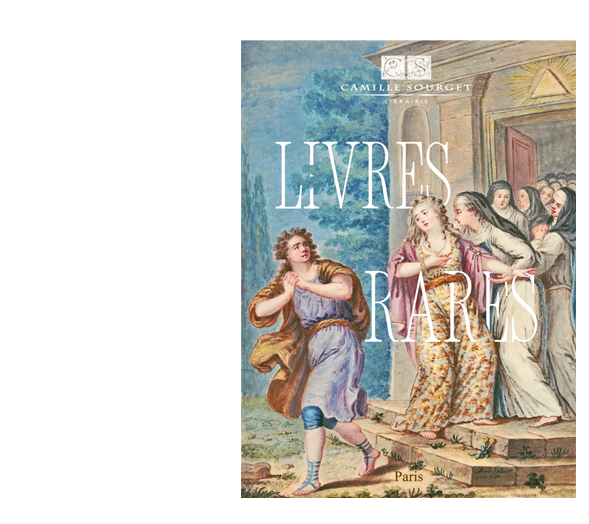Paris, Eugène Renduel, 1833.
8vo [204 x 126 mm] of xi pp., 1 frontispiece, 192 pp. Bound in red quarter-morocco, flat spine decorated with gilt patterns. Binding signed Thierry, successeur de Petit-Simier.
Very rare first edition and first issue, of “one of Victor Hugo’s most famous dramas.”(Carteret) Vicaire, IV, 278; Carteret, I, 404; Clouzot, p. 146; Talvart, IX, p.23; Bulletin Morgand et Fatout, 8304.
The edition is decorated with a beautiful etched engraved frontispiece by Célestin Nanteuil printed on India paper and pasted on.
Victor Hugo rejects the rules of the classical romantic theater. He aspires to reflect popular demands. His work is the mirror of his political commitment: “Nowadays, theater has a real importance that tends to constantly grow with civilization itself. Theater is a tribune, theater is a pulpit. Drama has a national mission, a social mission, a human mission.” Hugo knows he has responsibilities: “The poet too is in charge of souls. Most of them shouldn’t go out of the theater without carrying with them some austere and intense morality”. He only wants to “develop on stage things full of lessons and advice” as “any work is an action.”
“ʽTake the most hideous moral deformity, the most repulsive one, the most complete one; place it where it is best highlighted, in a woman’s heart, with all the conditions of physical beauty and of royal greatness, which give wittiness to the crime: and now mix to all this moral deformity a pure feeling, the purest one a woman can feel, the maternal feeling; in your monster put a mother; and this monster will interest, and the monster will make cry, and this creature who used to scare will arouse pity, and this deformed soul will become almost beautiful to your eyes’. Here is the subject, according to the author.” (Dictionnaire des Œuvres, IV, p. 279).
Performed for the first time on February 2nd 1833, Lucrèce Borgia, at the Théâtre de la Porte-Saint-Martin, “with the common people”, is a great success in front of an audience traumatized by half a century of revolutions and wars. The play is performed with Miss Georges and Frédérick Lemaître in the leading roles and “Miss Juliette” in the role of the princess Negroni. Hardly fifteen days after this triumphal performance, started the long affair between Victor Hugo and Juliette Drouet that only death would break. According to a contemporary critic, “the interest of the play was stronger than everything; classic as romantic amateurs wanted to know what would happen; there were no more author, actors or theater; there was a son who was going to be poisoned by his mother who adored him… all were carried away; orchestra, galleries, boxes, everyone stood up and applauded with hands and voice.” “Le roi s’amuse” being forbidden by censorship, Hugo produced Lucrèce Borbia six weeks after, which was a way to tell his opinion to the government. The play, by opposing the power, surrounded itself with a political dimension and denounced the duplicity in politics.
A precious copy in first state, preserved in its elegant half-morocco binding finely decorated by Thierry successor of Petit Simier. In 1874, Thierry succeeds to Petit-Simier. He will run alone the workshop until 1908.
A rare edition. Our researches allowed us to locate only 3 copies of this first state in public Institutions and French libraries (Lyons, 2 copies at the B.n.F.).
